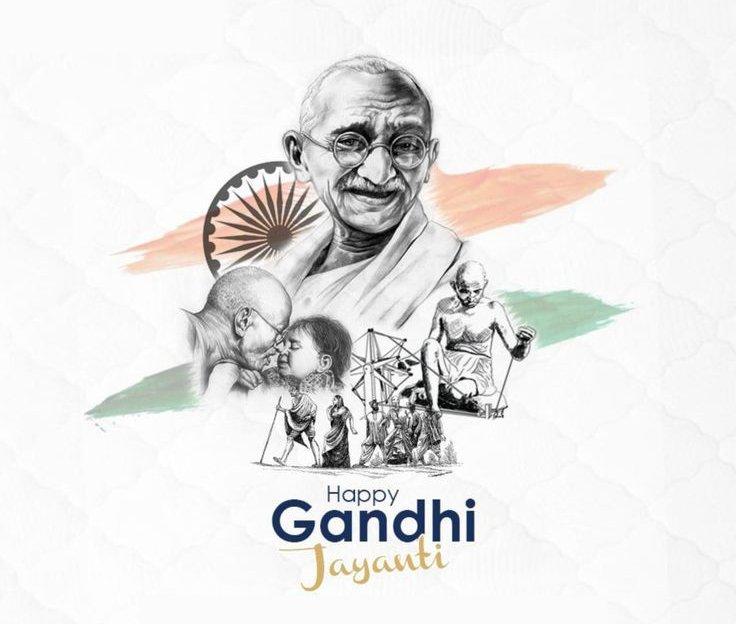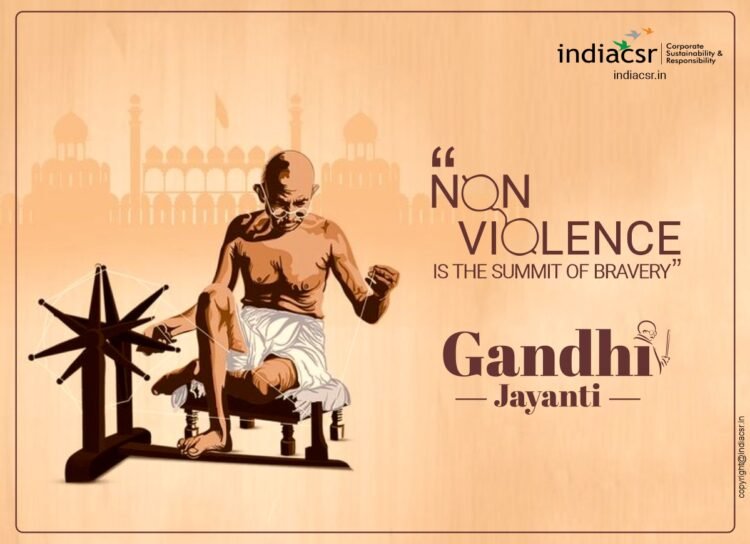Gandhi Jayanti, observed on 2nd October every year, commemorates the birth anniversary of Mohandas Karamchand Gandhi, popularly known as Mahatma Gandhi, the Father of the Nation in India. Gandhi played a pivotal role in India’s struggle for independence through his philosophy of non-violent resistance, satyagraha. He left an indelible mark on the world with his enduring teachings on peace, tolerance, and simplicity. On this occasion, let’s delve deeper into his life and explore ten interesting facts about this remarkable man.
1. Early Life and Education
Born on October 2, 1869, in Porbandar, Gujarat, Gandhi had a modest upbringing. He was profoundly influenced by his mother, Putlibai, who instilled in him the values of truth and religious tolerance. He travelled to England in 1888 to study law and later moved to South Africa to practice it. His experiences with racial discrimination there sowed the seeds for his civil rights movements.

2. Philosophy of Non-violence
Gandhi firmly believed in Ahimsa, the principle of non-violence. He conceived satyagraha, a form of peaceful resistance to tyranny through mass civil disobedience, which was rooted in absolute non-violence. His principles became instrumental in India’s fight against British rule, inspiring numerous civil rights movements globally, including the American Civil Rights Movement led by Martin Luther King Jr.
3. The Salt March
In 1930, Gandhi led the Dandi March, also known as the Salt March, to protest the British monopoly on salt production and its taxation. He walked 240 miles from Sabarmati Ashram to Dandi in Gujarat, making salt himself and inspiring millions to defy the salt laws, a defining moment in India’s non-violent struggle for freedom.
4. Simple Living
Gandhi exemplified simplicity and self-reliance. He led a minimalist lifestyle, wearing simple khadi clothes and eating a vegetarian diet. He spun his own cloth and encouraged others to do the same as a means to promote self-sufficiency and boycott British goods.
5. Advocate for Women’s Rights
Mahatma Gandhi was a staunch advocate for women’s rights. He opposed purdah, child marriage, and dowry, and emphasized the importance of education and equality for women. He believed that the true measure of a civilization is how it treats its women.
6. Fasting as a means of Protest
Gandhi used fasting as a tool for peaceful protest and negotiation. His hunger strikes highlighted injustices and forced authorities to amend their actions. One significant example is his fast unto death in 1932 against the British proposal of separate electorates for Dalits, leading to the Poona Pact.
7. His Pen was his Sword
Mahatma Gandhi was a prolific writer. He wrote extensively about his philosophies, ideas, and experiences in various newspapers and books. His autobiography, “The Story of My Experiments with Truth,” is considered a masterpiece, revealing his journey and innermost thoughts.
8. Globally Revered Icon
Gandhi’s teachings and philosophy have earned him respect worldwide. His birthday, October 2nd, is observed as the International Day of Non-Violence by the United Nations, reinforcing his impact and influence on global peace and harmony.

9. Musical Influence
Gandhi’s influence extended to the world of music as well. Several renowned musicians like John Lennon and Bob Dylan revered his ideologies and reflected them in their music, showing the universal appeal of his principles of peace and non-violence.
10. His Last Words
Gandhi’s last words were reportedly “Hey Ram” after he was shot on January 30, 1948. These words exemplify his lifelong devotion to God and his principles of peace, compassion, and non-violence.
Gandhi Jayanti is not just a day to remember his contributions, but also a day to reflect upon and embody his teachings in our lives. His life story encourages us to be the change we wish to see in the world and to contribute towards creating a more equitable, harmonious, and peaceful world.
Copyright@ India CSR
Also Read:-
Happy Gandhi Jayanti 2025: Best Quotes, Wishes, Messages, Whatsapp Status, and Images






















